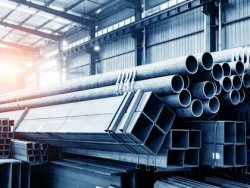The government of Guinea has forced developers, including Rio Tinto and China Bauw, to go beyond exporting raw ore by setting up domestic refineries and toll plants, according to media reports. The policy is aimed at strengthening local industrialization, creating jobs and gaining more value from the country's mineral wealth.
Continuation of the industrialization of Guinea
Planning Minister Ismael Nabe announced that the entire mining consortium in Simandou should integrate downstream processing into its development strategies. He stressed that Guinea's new policy is breaking away from decades of exporting crude ore, instead requiring companies to process minerals domestically before shipping them abroad.
"We want to build an oil refinery in Guinea. This is our game plan," Nabe said. "If Baowu comes to Guinea, they will build a refinery before exporting. For 50 years, we’ve been sending minerals overseas. Now we must create jobs and transform the ecosystem."
Investment and infrastructure challenges
Developersface the prospect of multi-billion-dollar additional investment to build processing facilities and smelters on top of already costly rail and Port infrastructure. These requirements may delay the start of the first ore shipments, which were initially expected to make a significant contribution to the global iron ore supply.
The Guinean authorities have made it clear that the project partners must submit detailed plans to the refinery and the plan






